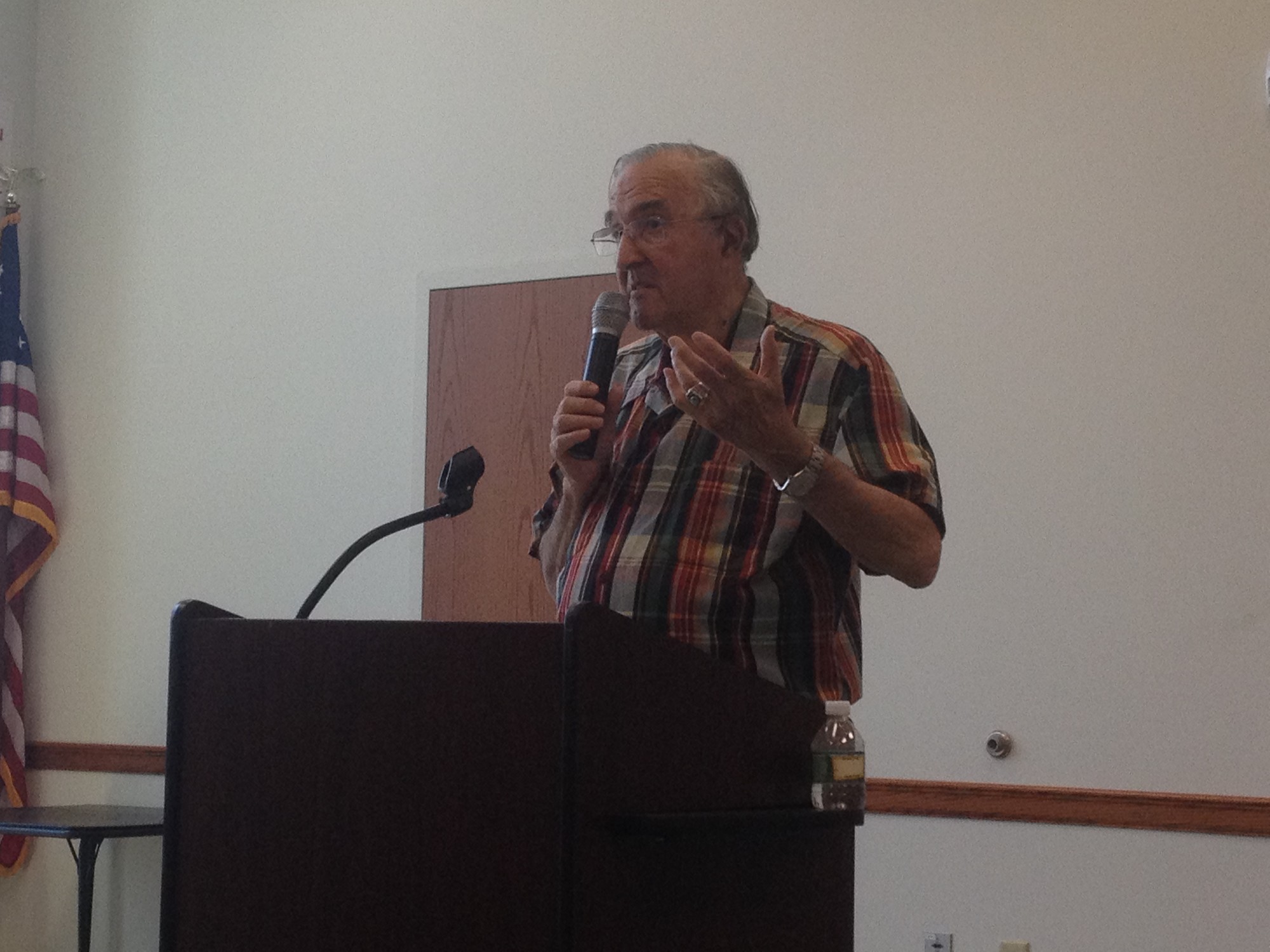Elmont Library hosts Middle East talk
An audience of about 20 people listened to a speaker at the Elmont Library on May 29 who addressed the history and current chaos in the Middle East.
Howard Shurdut, a Roslyn resident with a background in sociology, psychology and cultural anthropology, discussed the complexities of the current conflicts in the Middle East and their historical contexts, at times connecting the issues with recent events in the U.S. He stopped short of advocating for specific solutions, saying that he didn’t have any, and focused instead on exploring contradictions and challenging certainty.
“I believe in one basic concept, for me — I’m skeptical of everything and everybody,” Shurdut said. “Skeptical, not cynical. Skeptical.”
His talk hopped around the tumultuous regions of the Middle East, from the successes of Islamic State militants, to internal tensions in Iran, to U.S.-allied countries funneling money to groups that the U.S. military or its allies are fighting. Shurdut pointed out the many shifting allegiances in the region, and stressed that circumstances there change, often faster than the public’s understanding of them.
“Going back to Turkey: we support the Kurds, but the Turks won’t help us too much because the Kurds are terrorists in Turkey,” he said. “Kurds live in Syria, Turkey, Iran — and they want to have their own country. They’ve wanted that for many years, and they have been responsible for many terrorist attacks in Turkey.”
Shurdut touched on Egypt, and how U.S. support for its government has gone back and forth as power has changed hands, “and now what’s our position? Can anybody tell me? Not so clear.”
He mentioned the alliance between the U.S. and Israel, saying that contradictions exist there, too. “Without us, Israel doesn’t exist,” he said. “But then Israel — Netanyahu — is sort of saying, ‘I’m doing what I want to do; the hell with what you say.’ That’s in essence what’s happened. They’re a democracy surrounded by more and more people who are gaining in strength, not losing in strength, gaining in converts around the world…Our real closest friend is not acting like a friend, because they’re saying, ‘We don’t like your ideas.’”
A woman in the audience stated that the country took its position with President Barack Obama and not the U.S. as a whole. Shurdut responded that policies of the U.S. government represent the nation as a whole. “Obama is our president, whether you like him or don’t like him. The point is, we have a policy in this country, and they are going a different way, as far as building sites on the West Bank and so forth.”
He identified some enemies, like Al Qaeda, the Taliban and Islamic State, “and, you might say, even Russia.”
Shurdut dismissed the notion that policy differences can be divided along Republican and Democratic lines, stressing instead that the complexity of international conflicts suggests that there are no simple ideological solutions. “My talk today is ‘dilemma,’ which says there really is no solution,” he said. “You take your chances going this way or that way.”
Shurdut gave his opinion on one matter — Iran. He noted the country’s rich history and culture, its educated middle class and its youth, who he said want more freedom. He said the current political conversation about Iran and its nuclear program can obscure its history of friendly, arms-sharing relations with Israel, as well as the CIA’s involvement in overthrowing the Iranian government in 1953, and the resulting resentment among its population that has endured.
His prognosis for any intervention in the region was bleak. “No outside force has succeeded in the Middle East, ever,” he said.
Shurdut said his talk’s purpose was to encourage people to think for themselves, and to not just accept what they see on television or hear from somebody else, including him. He added that there is also value in keeping one’s mind engaged with the goings on of the world. “There’s value to being aware of what’s happening in the global warming area, in the cultural area, in the social area, in the physical area, in the astronomical area — it’s being alive. The absence of it is being dead. That’s the significance, to me.”

 44.0°,
Mostly Cloudy
44.0°,
Mostly Cloudy 




